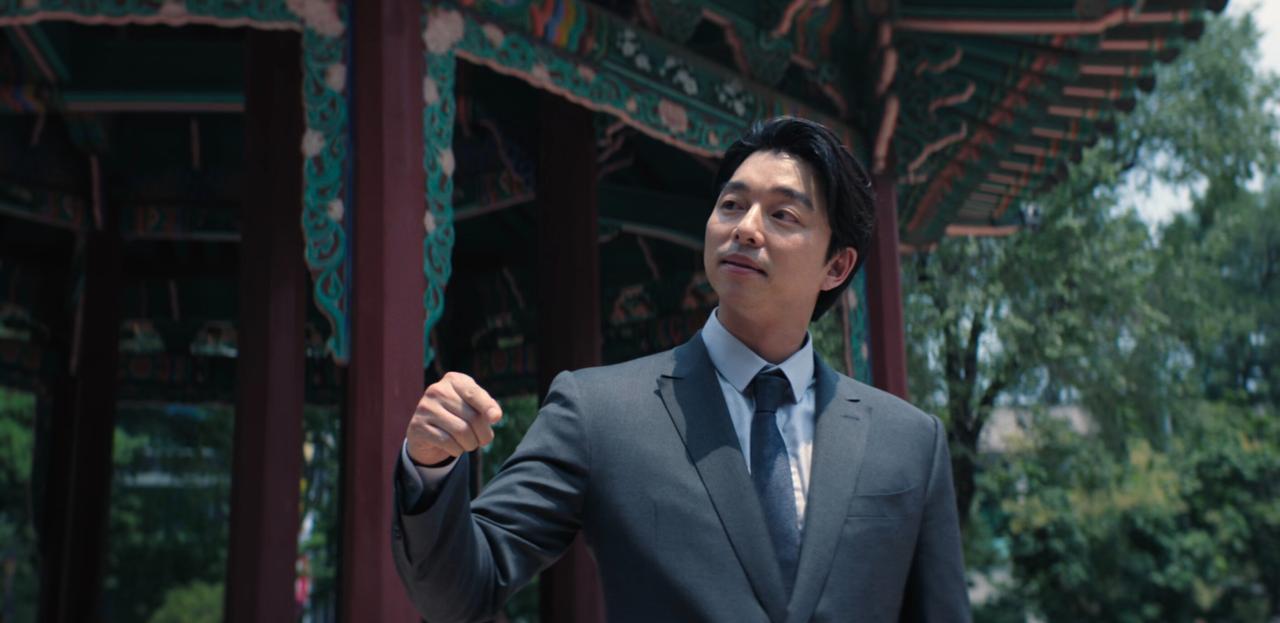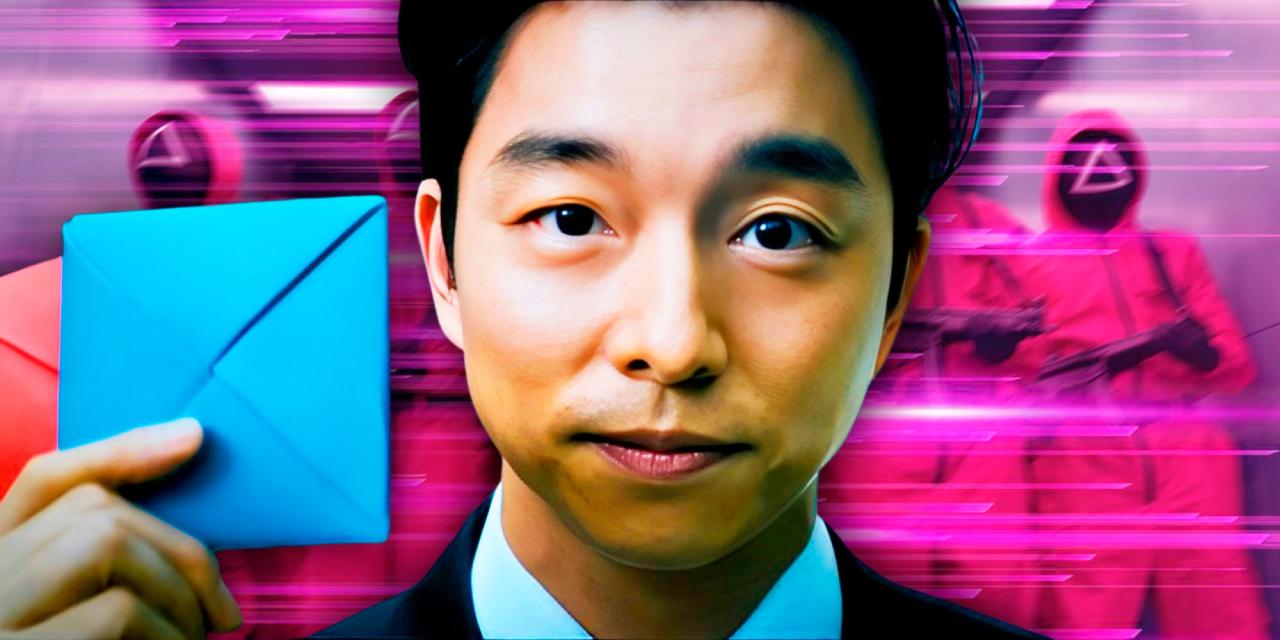Squid Game Histoire Vraie? The wildly popular Netflix series sparked intense debate: how much of its brutal depiction of debt-ridden individuals competing in deadly children’s games reflects reality? This exploration delves into the real-world parallels inspiring “Squid Game,” separating fact from fiction, and examining the show’s powerful social commentary on global economic inequality and the desperation it breeds.
We’ll investigate the show’s inspiration, comparing the fictional games to real-life situations of exploitation and desperation. We’ll also analyze the accuracy of its portrayal of South Korean society and its class struggles, uncovering where the show exaggerates for dramatic effect. Ultimately, we’ll consider “Squid Game’s” lasting impact on global conversations surrounding economic disparity and social justice.
So, you’re into the “Squid Game histoire vraie” debate? It’s fascinating how real-life desperation fuels such stories. Think about the scale of spectacle, though – imagine a drone show with that level of visual impact, like the incredible china new year drone show 2033 is projected to be. That kind of coordinated display brings a whole new meaning to high-stakes competition, reminding us of the intense pressure depicted in the Squid Game’s fictional world.
The Inspiration Behind “Squid Game”: Real-World Parallels
The dystopian world of “Squid Game” resonates with viewers due to its unsettling reflection of real-world struggles. The show’s depiction of extreme debt and societal pressures isn’t entirely fictional; it draws heavily from the harsh realities faced by many, particularly in South Korea and globally.
Real-Life Debt and Societal Pressures

The show accurately portrays the crippling weight of debt. Many individuals in South Korea, and indeed worldwide, find themselves trapped in cycles of debt due to factors like unemployment, medical expenses, and predatory lending practices. Stories abound of people taking desperate measures, including resorting to illegal activities, to alleviate their financial burdens. The pressure to succeed in a highly competitive society, coupled with the stigma surrounding failure, further exacerbates these issues.
Historical Context of Economic Inequality in South Korea

South Korea’s rapid economic growth has been accompanied by significant income inequality. While the nation boasts a thriving tech industry and global corporations, a substantial portion of the population struggles with precarious employment, low wages, and limited social safety nets. This disparity fuels social unrest and contributes to the desperate situations depicted in “Squid Game.” The historical context includes the rapid industrialization post-Korean War, which while creating economic growth, also created a stark divide between the wealthy elite and the working class.
This inequality continues to be a pressing issue today.
Comparison of “Squid Game” Games with Traditional Games
The children’s games featured in “Squid Game,” while presented with deadly consequences, share a surprising resemblance to traditional Korean games. Games like “Red Light, Green Light” and “Marbles” are recognizable childhood pastimes, highlighting the show’s unsettling juxtaposition of innocence and brutality. The familiar nature of these games amplifies the shock and horror of their deadly context within the show.
So you’re curious about “Squid Game histoire vraie”? While the show’s fictional, the desperation it portrays sadly reflects real-world struggles. Think about the dazzling spectacle of the shanghai new year drone show ; that level of technological advancement highlights the vast disparity between the haves and have-nots, a key theme in “Squid Game.” Ultimately, the show’s power lies in making us confront these harsh realities.
However, the scale and stakes are drastically different from the casual play of children’s games.
Fictional vs. Real-World Dangerous Activities
| Game Name | Description | Real-World Parallel | Level of Risk |
|---|---|---|---|
| Red Light, Green Light | Players must freeze when the doll turns around; those who move are eliminated. | High-stakes job interviews or auditions where failure can have devastating consequences. | High (in the show; low in reality) |
| Honeycomb | Players must carve out a specific shape from a honeycomb without breaking it. | High-pressure situations with potentially severe repercussions for failure (e.g., high-stakes exams, demanding deadlines). | Medium (in the show; low in reality) |
| Tug-of-War | Two teams compete in a tug-of-war; the losing team is eliminated. | Competitive business environments where teams vie for resources and survival. | High (in the show; low in reality) |
| Marbles | Players gamble with marbles, risking elimination. | Gambling, high-stakes financial investments, or other forms of risky behavior driven by desperation. | High (in the show; varies in reality) |
Debunking Myths: Fact vs. Fiction in “Squid Game”‘s Narrative
While “Squid Game” uses heightened drama to convey its message, it’s crucial to distinguish between the show’s fictional elements and the very real issues it addresses. The show’s exaggerated scenarios serve to highlight the severity of these problems, but they don’t represent the full picture.
Documented Cases of Debt-Related Desperation
Numerous documented cases exist of individuals resorting to desperate measures due to overwhelming debt. While the “Squid Game” scenario is extreme, real-life examples include individuals committing crimes, harming themselves, or neglecting their families due to financial pressure. These cases, while not involving deadly games, illustrate the immense stress and desperation caused by extreme debt.
Accuracy of the Show’s Portrayal of South Korean Society
The show’s portrayal of South Korean society’s class system and the struggles of its lower classes holds a degree of accuracy. The stark contrast between the wealthy elite and the working class is a reality in South Korea, as it is in many other nations. However, the show simplifies and exaggerates certain aspects for dramatic impact.
Exaggerations and Fictionalizations for Dramatic Effect

The show undeniably exaggerates the reality of debt and societal pressures. The games themselves, the scale of the operation, and the level of violence are all fictionalized for dramatic effect. The extreme nature of the show serves as a potent metaphor for the harsh realities faced by many, but it is not a literal representation of reality.
Factual vs. Fictional Elements in “Squid Game”
- Factual: The prevalence of debt and economic inequality in South Korea and globally.
- Factual: The pressure to succeed in a competitive society.
- Factual: The existence of desperation and criminal activity driven by financial struggles.
- Fictional: The deadly games and their organization.
- Fictional: The scale and scope of the clandestine operation.
- Fictional: The level of violence and brutality depicted.
The Social Commentary of “Squid Game”: A Reflection of Global Issues
“Squid Game” transcends its genre to become a powerful social commentary on capitalism, consumerism, and the ever-widening wealth gap. The show’s narrative uses the extreme context of the games to symbolize the struggles of individuals against systemic inequalities.
Capitalism, Consumerism, and the Wealth Gap
The show critiques the relentless pursuit of wealth and the pressures of consumerism in a capitalist society. The desperation of the players is directly linked to their inability to keep up with the demands of a system that prioritizes profit over human well-being. The stark contrast between the opulent lifestyles of the VIPs and the impoverished lives of the players emphasizes the widening chasm between the rich and the poor.
Games as Symbols of Systemic Inequalities
The games themselves act as metaphors for the struggles individuals face against systemic inequalities. The rules are rigged, the odds are stacked against the players, and survival depends on factors beyond their control. This reflects the systemic disadvantages faced by many in real life, where factors such as socioeconomic background and access to resources can significantly impact an individual’s opportunities.
Comparison with Similar Themes in Other Media
The themes explored in “Squid Game” resonate with similar themes found in other works of fiction and non-fiction. For example, the show shares thematic similarities with dystopian novels like “The Hunger Games” and documentaries exploring economic inequality and social injustice. The show’s success lies in its ability to present these familiar themes in a fresh and engaging way, making them accessible to a broader audience.
Impact on Global Conversations, Squid game histoire vraie
“Squid Game” sparked global conversations about economic disparity and social justice. The show’s immense popularity brought these issues to the forefront of public discourse, prompting discussions about the need for social reform and greater economic equality. The show’s impact has been seen in increased awareness and engagement with these critical issues, highlighting the power of media to influence social change.
Visual Elements and Their Symbolic Meaning in “Squid Game”
The visual elements of “Squid Game” are meticulously crafted to enhance the show’s thematic resonance. The color palette, setting, props, and costumes all contribute to the overall impact and symbolic meaning of the narrative.
Color Palette and Emotional Impact
The show’s vibrant color palette, particularly the contrasting use of bright primary colors against muted, desaturated tones, creates a striking visual effect. The bright colors of the games are juxtaposed with the drab, oppressive environment of the players’ quarters, highlighting the stark difference between the artificial world of the games and the harsh reality of their lives. This visual contrast underscores the deceptive nature of the games and the cruel reality they mask.
So you’re wondering about the “Squid Game histoire vraie”? While the show’s fictional, the desperation it depicts is sadly real for many. Think about the sheer scale of coordinated spectacle, and how that relates to something like the amazing technology showcased at the china drone show 2028 , which could potentially be used for similarly large-scale, albeit hopefully less deadly, events.
The contrast highlights how far technology can go, and how crucial it is to use it responsibly, unlike the twisted games in Squid Game.
Setting and Societal Divisions
The setting itself, with its stark contrast between the opulent VIP lounge and the dilapidated living quarters of the players, visually represents the vast societal divisions that the show explores. The physical space mirrors the social and economic disparities between the wealthy elite and the impoverished masses, visually reinforcing the show’s central theme of inequality.
Props and Costumes as Symbols
The costumes worn by the players, their simple green tracksuits, symbolize their vulnerability and uniformity. In contrast, the elaborate attire of the VIPs represents their power and detachment from the suffering of the players. The use of props, such as the marbles and the honeycomb, adds layers of symbolism, representing both childhood innocence and the high stakes of the games.
Symbolic Meaning of a Key Scene
Consider the scene where the players are first introduced to the “Red Light, Green Light” game. The giant doll, a seemingly innocent childhood toy, stands as a symbol of the deceptive nature of the games and the manipulative control exerted over the players. The bright colors of the game contrast sharply with the players’ desperation, creating a disturbing visual juxtaposition.
The silence before the doll turns, followed by the sudden bursts of panicked movement and the screams of those eliminated, heighten the tension and underscore the life-or-death stakes.
The vast, empty playground, bathed in the harsh sunlight, amplifies the players’ isolation and vulnerability. The doll, a seemingly benign figure, becomes a symbol of inescapable fate, its movements dictating life and death. The stark contrast between the childish game and the brutal consequences underscores the show’s central theme of the dehumanizing effects of systemic inequality.
Ultimate Conclusion
“Squid Game Histoire Vraie” reveals a complex truth: while the show’s depiction of deadly games is fictional, the underlying desperation and societal pressures it portrays are painfully real. The show serves as a potent allegory for global economic inequality and the struggles of vulnerable populations worldwide. By examining both the fictional and factual elements, we gain a deeper understanding of the social issues the show highlights and its enduring relevance in sparking crucial conversations about economic justice and societal change.
Frequently Asked Questions: Squid Game Histoire Vraie
Was “Squid Game” based on a true story?
No, “Squid Game” is a fictional show. However, it draws inspiration from real-world issues like extreme debt, economic inequality, and societal pressures faced by many individuals globally.
Are the games in “Squid Game” based on real games?
Some of the games are inspired by traditional Korean children’s games, but the deadly consequences are entirely fictional.
How accurate is “Squid Game’s” portrayal of South Korean society?
While the show exaggerates certain aspects for dramatic effect, it reflects real-world issues like economic disparity and the pressures faced by many in South Korean society.
What is the show’s overall message?
The show critiques capitalism, consumerism, and the widening wealth gap, highlighting the desperation and struggles faced by those marginalized by systemic inequalities.
